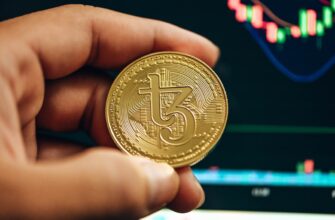# Anonymous-User Binance: Trading Without KYC? Risks, Alternatives & FAQs
With growing privacy concerns in crypto, many search for “anonymous-user Binance” options. While Binance requires strict Know Your Customer (KYC) verification for most functions, this guide explores the realities of anonymous trading, legal alternatives, and critical security considerations for privacy-focused traders.
## Understanding Binance’s KYC Requirements
Binance mandates identity verification for all users to comply with global regulations. As of 2023:
– **Full KYC is required** for deposits, spot trading, and withdrawals
– Unverified accounts have **zero trading or withdrawal access**
– Exceptions for limited NFT view-only access don’t enable transactions
– P2P trading requires merchant verification and bank account links
Attempting anonymous use violates Binance’s Terms of Service and risks permanent account suspension.
## Why Complete Anonymity Isn’t Possible on Binance
Several factors prevent truly anonymous usage:
1. **IP Tracking**: Binance logs IP addresses and device fingerprints
2. **Transaction Monitoring**: All trades undergo blockchain analysis
3. **Withdrawal Checks**: Fiat withdrawals require linked bank accounts
4. **Regulatory Pressure**: Global AML laws force strict compliance
VPNs or pseudonyms don’t bypass core KYC requirements for functional trading.
## Legal Alternatives for Private Crypto Trading
While Binance doesn’t support anonymity, these regulated options offer greater privacy:
### Decentralized Exchanges (DEXs)
– **Uniswap**: ETH-based swaps with wallet connectivity only
– **PancakeSwap**: BSC network DEX with no personal data collection
– **dYdX**: Non-custodial derivatives trading
### Peer-to-Peer Platforms
– **Bisq**: Open-source desktop app with Tor integration
– **LocalMonero**: Cash/mail-based Monero transactions
– **Hodl Hodl**: Multisig escrow without KYC for BTC
### Privacy-Focused Centralized Exchanges
| Exchange | Features | Verification Level |
|—————|———————————–|————————–|
| KuCoin | <2 BTC daily withdrawal without KYC | Email-only for basic tier|
| Bybit | Up to $10k daily spot trading | Level 0 (no KYC) |
| MEXC | Zero KYC for crypto deposits | SMS verification only |
## Critical Risks of "Anonymous" Trading Attempts
Bypassing KYC carries severe consequences:
– **Account Freezes**: Binance instantly blocks suspicious activity
– **Funds Confiscation**: Unverified accounts can't withdraw assets
– **Legal Penalties**: Violating AML laws may trigger fines or prosecution
– **Scam Vulnerability**: No platform protection for unofficial methods
– **Tax Complications**: Untraceable transactions create reporting issues
## Enhancing Privacy Within Binance's Framework
While full anonymity isn't feasible, these legitimate practices increase privacy:
1. **Use dedicated devices** for trading activities
2. **Connect via VPN** to mask IP addresses (where legal)
3. **Withdraw to private wallets** immediately after trading
4. **Utilize privacy coins** like Monero for external transfers
5. **Separate email/phone** exclusively for crypto accounts
## Frequently Asked Questions (FAQ)
### Can I use Binance without any verification?
No. Binance requires identity verification for deposits, trading, and withdrawals. Unverified accounts have no transactional capabilities.
### What happens if I try to trade anonymously on Binance?
Accounts attempting to bypass KYC face immediate suspension. Funds may be permanently locked, and illegal activity could be reported to authorities.
### Are there withdrawal limits for unverified Binance users?
Unverified accounts have **zero withdrawal access**. Even viewing NFT marketplaces requires basic email verification.
### Which cryptocurrencies offer the best privacy?
Monero (XMR), Zcash (ZEC), and Dash provide enhanced anonymity through advanced cryptography, unlike transparent chains like Bitcoin or Ethereum.
### Is anonymous crypto trading legal?
Legality varies by jurisdiction. Most countries require KYC for fiat conversions. Privacy-focused trading may violate AML laws in regions like the US, EU, and UK.
## Key Takeaways
Binance's mandatory KYC makes true anonymous use impossible. While privacy remains important in crypto, traders should prioritize legal alternatives like DEXs or low-KYC exchanges instead of risking account termination. Always verify platform policies and comply with local regulations—attempting to circumvent verification jeopardizes both funds and legal standing. For privacy-conscious users, decentralized platforms offer the most autonomy while maintaining regulatory compliance.








